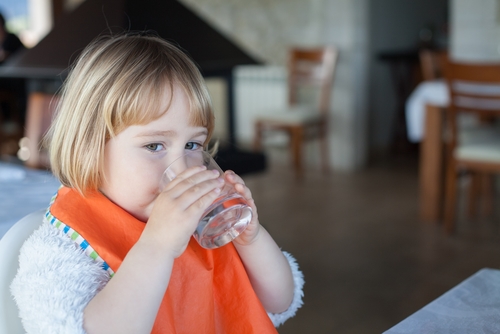Water is essential for all body systems to operate smoothly and should be the main source for hydration, but all water is not the same.
There are ways to make healthier choices in the water that you drink.
Avoid Dangerous Chemicals in Water
Lead
Lead is the primary cause for concern due to its presence in pipes, fittings and solders.
Lead’s harmful impact on our bodies has been well-documented.
Besides lead, there are other dangerous chemicals in water that should be avoided.
Fluoride
Fluoride is a pollutant – a by-product of copper, iron and aluminum manufacturing.
According to the handbook, Clinical Toxicology of Commercial Products, fluoride is more poisonous than lead and just slightly less poisonous than arsenic.
It is a cumulative poison that accumulates in bone over the years.
According to the Physician’s Desk Reference, “in hypersensitive individuals, fluorides occasionally cause skin eruptions such as atopic dermatitis, eczema, or urticaria; Gastric distress, headache, and weakness have also been reported. These hypersensitive reactions usually disappear promptly after discontinuation of the fluoride.”
Fluoride even at dosages of 1 part per million, found in artificially fluoridated water, can:
The most recent studies do not even show that water fluoridation is effective in reducing tooth decay.
In the largest U.S. study of fluoridation and tooth decay, public health service dental records of over 39,000 school children, ages 5-17, from 84 areas around the country showed that the number of decayed, missing, and filled teeth per child was virtually the same in fluoridated and non-fluoridated areas.
Chlorine
Chlorine is added to water to kill certain bacteria; however, when it reacts with organic matter (like leaves), it produces harmful trihalomethanes or THMs.
These byproducts trigger the production of free radicals in the body and cause serious cell damage.
THMs are chemicals that have been linked in a number of studies to an increased risk of:
- Miscarriage
- Bladder cancer
- Rectal cancer
- Birth defects
Plastics
You may think it is safer to drink bottled water, but bottled water regulations are often much looser than that of tap water.
If you do drink bottled water, check labels thoroughly to be sure that the bottled water is not just packaged, un-filtered tap water and that the plastic bottle itself is free of BPA’s.
Your best bet is to avoid water from any kind of plastic bottle and to drink water from glass water bottles instead.
To learn more see www.epa.gov.
Ensure Healthier Water
Here are some ways to ensure that your water is healthier:
- Test lead levels in your tap water. If high levels of lead are present, it is a good idea to find out what type of pipes, fittings and faucets are in your home as they may be leaching lead.
- Other chemicals to look for when testing your water are: fluoride, chlorine, mercury, chloramines, volatile organic compounds (VOC), trihalomethanes (THMs), methyl tert-butyl ether (MTBE), asbestos, and arsenic.
- Never use hot tap water for drinking or cooking as lead leaches more easily from hot water lines.
- Let the cold water run for a couple of minutes before drinking. Overnight, the water that is sitting in the pipes has a higher lead count from the lead leaching through pipes and solders.
- If you have public water, read your local Consumer Confidence Report to find out what chemicals are present in your water.
- If you have well-water, have it tested for chemicals and contaminants. Avoid using pesticides, fertilizers and other chemicals near your well’s supply source as they can leach in.
- Invest in a water filter system. Look for options with a reverse osmosis component and/or activated carbon. Be sure to maintain the filter system otherwise it can actually result in higher levels of contamination.
Still Looking for Answers?
Visit the Epidemic Answers Practitioner Directory to find a practitioner near you.
Join us inside our online membership community for parents, Healing Together, where you’ll find even more healing resources, expert guidance, and a community to support you every step of your child’s healing journey.
Sources & References
No sources & references currently available.
Resources
No resources currently available.
Related Pages
No related pages currently available.
